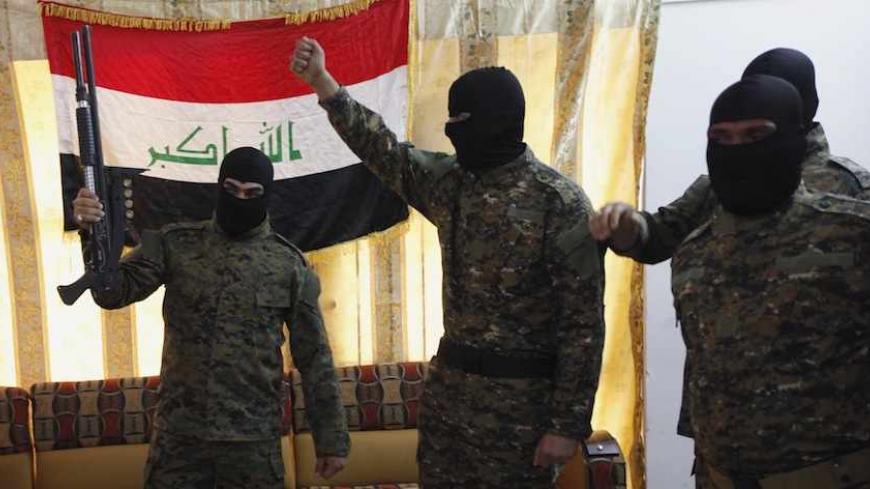Militiamen in Iraq do not only carry weapons, they also wield religious, moral and economic power over their social environment. They play the role of neighborhood governors in times of peace and murderers in times of war.
Mohammed, a member of a well-known Shiite militia in Iraq, insisted on being called "Sheikh Mohammed," by which the residents of his area in Baya, south of Baghdad, know him. Speaking to Al-Monitor, he said he does not normally carry weapons without receiving orders from within his circles. What happened in the Baya neighborhood was a response to the bombing of a cafe, in which one of the neighborhood’s residents was involved.


